Page 141 • (1,763 results in 0.028 seconds)
-

Teranejah Lucas, 28, is in her senior year and majoring in social work. She’s preparing to do great things—after already accomplishing significant wins—and wrapping up a fascinating capstone. “As a single parent, first-generation college student, I’m out here defying the odds,” she says. Lucas lives…
-traditional student, so even a non-traditional student can still get the full college experience,” Lucas says.Social WorkLearn more about the Social Work program at PLUA Captivating Capstone Lucas has received high praise from PLU faculty for her capstone, “Resistance to the Roots of Colonization: Protected Crowns,” which focuses on the personal and political aspects of Black hair. “There’s still not a lot of research on Black hair,” Lucas says, referencing the historical lack of Black representation
-
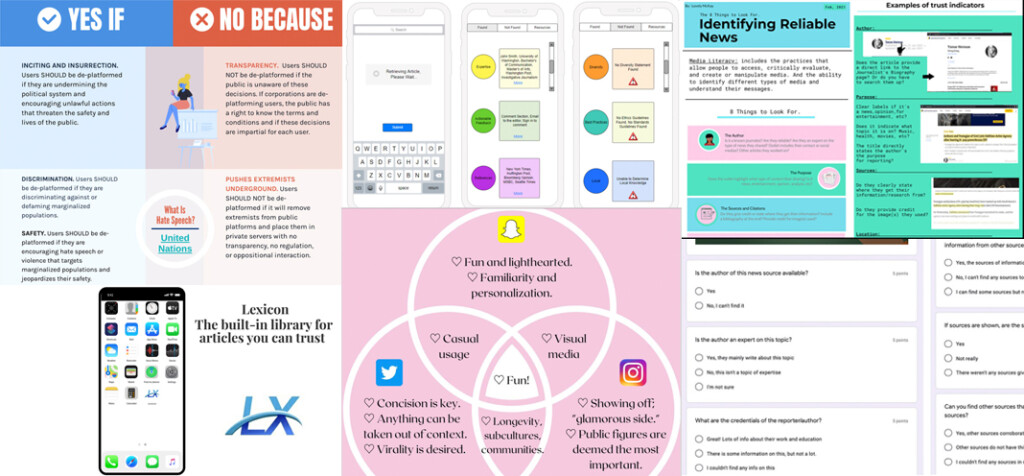
Originally published on the PLU Library blog . Reposted with permission. During J-Term 2021, students in Assistant Professor Kate Drazner Hoyt’s Media Literacy COMA 388 explored topics such as: the role that the press plays in sustaining democracies; the different forms of online misinformation and…
media literacy is important for people as it becomes a part of their daily lives. Such as reading news articles, social media posts, doing research, online shopping, etc. Everyone is constantly having to dictate and evaluate whether or not what their reading online is real or fake.Read full project briefAndrew Sullivan: Google Form: Media Trustworthiness Test Artist Statement: My media literacy tool is a fully functional quiz that one can take to check the reliability of their media source. Based on
-

TACOMA, WASH. (March. 16, 2016)- Charles Reinmuth ’19 didn’t think twice when he was offered the chance to spend five weeks in the summer getting acclimated to life at Pacific Lutheran University and earning his first six college credits for free. “I couldn’t pass up…
fall semester. “I was able to help people moving in with some of their questions and have some experience behind what I was saying,” Reinmuth said. Organized by the Office of the Provost in collaboration with a faculty task force and the Department of Residential Life, Summer Academy was inspired by research that demonstrates that first-generation and other non-traditional students benefit substantially from ongoing community support to help navigate the expectations of college.“There are incoming
-

Henri Coronado-Volta grew up in Seattle, Washington, and chose PLU because the smaller school offered the opportunity to build community, a chance to continue swimming, and living close to home—but not too close. He double majored in global studies and Hispanic studies and minored in…
de Penitente and Rocha. I tried maté, a highly caffeinated drink that people drink any time of the day (or night). I’m still in contact with some friends in Uruguay, which is pretty special.You will attend the University of Washington’s Public Health (MPH) Epidemiology program this fall. How do you feel PLU prepared you for graduate school? By broadening my perspective on the world in my study away and individual country class research. PLU helped instill useful study habits and time management
-
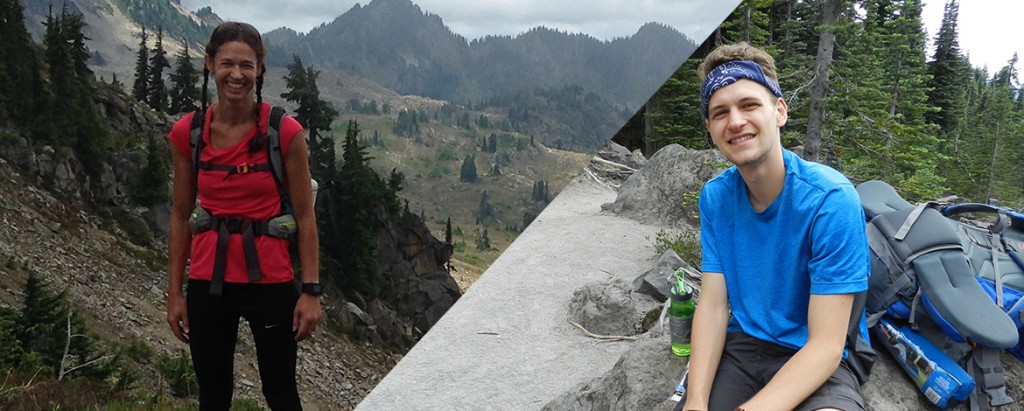
In her free time, professor of religion Dr. Bridgette O’Brien likes to participate in ultrarunning—completing runs longer than a marathon (26.2 miles). While Professor O’Brien is out on the trail, she often takes that time to think about her connection to the outdoors, a connection…
you’re are less civilized, and more in touch with the kinds of primal instincts one has to use to survive. I think in this over-civilized, over-developed world, some feel there is a cultural, existential crisis going on. Ultrarunning in a natural setting is a way for people to connect in a meaningful way to not only each other, but to their primal past. It’s a way to reconnect with nature.” In her research, Dr. O’Brien is focusing on a group of five elite women from the ultrarunning community
-
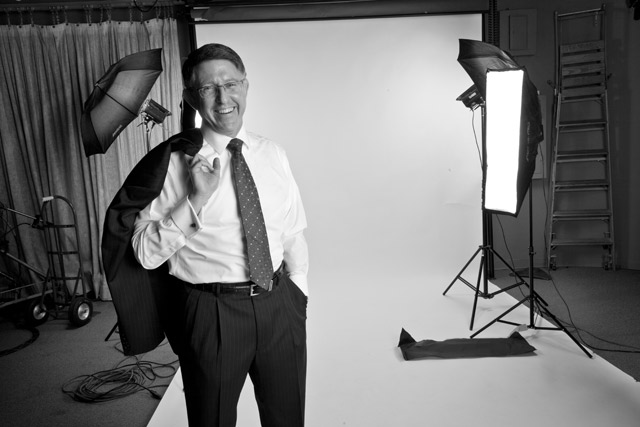
Thomas W. Krise arrived as Pacific Lutheran University’s 13th president on June 1. He was chosen for his passion for a liberal arts education, as well as being a strategic thinker and first and foremost a teacher and an academic. (Photos by John Froschauer) What’s…
accomplishments there, Krise was the founder and first director of the Air Force Humanities Institute at the academy. Thomas Krise enjoys some Caribbean steel drum music and ice cream and strawberries at PLU’s summer Strawberry Festival. Coincidentally, Krise went to high school in the Caribbean and is an expert in early Caribbean and American, 17th century literature. Given this eclectic and wide-ranging background, it should not be surprising how vast, and expansive, his interests are. Both he and Patty
-
Applications are currently being accepted for the Spring 2024 term of the Science Undergraduate Laboratory Internships (SULI) program with the Department of Energy’s (DOE) Office of Science (SC). The application deadline is Wednesday, October 4, 2023, at 5:00 p.m. EDT. Two informational workshops will be…
requirements. SULI application workshop: August 10, 2023 from 3:00 – 4:00 pm EDT (register here) SULI and CCI opportunities workshop: September 6, 2023 from 2:00 – 3:00 pm EDT (register here) Through SULI, undergraduate students discover science and technology careers at the DOE national laboratories and gain the experience needed to transition from intern to employment. Interns work directly with national laboratory scientists and engineers, assisting them on research or technology projects that
-
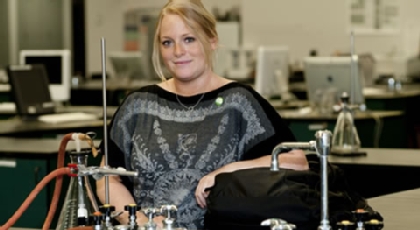
Determination pays off By Barbara Clements Sally Osborn was sleeping on a friend’s couch. She was worried about her two kids, who were staying with a relative. She was also trying to figure out how to juggle her job and her classes at Pacific Lutheran…
research assistant with the university’s the nuclear magnetic resonance spectrometer, and hopes to eventually become a research chemist and attain her doctorate. Without the support system at PLU, Osborn doesn’t think that dream would ever become a possibility. “This place and the people are amazing,” she said. Read Previous PLU benefactor dies Read Next Who doesn’t like kudos? COMMENTS*Note: All comments are moderated If the comments don't appear for you, you might have ad blocker enabled or are
-

Guilt and Innocence – What does it Mean to be Alive? By Julia Walsh ’14 “Do you enjoy your work?” It’s an innocuous, innocent question. Would that it had an innocuous, innocent answer. I came to apply for the Kurt Mayer Summer Fellowship in Holocaust…
summer’s research inflicted upon me. A truer, deeper answer to that question is that I love it even though and perhaps because it hurts me. This research has helped to show me what it means to be alive. I will never forget what it has taught me. Never. Read Previous KPLU names new general manager Read Next Neurosurgeon focuses on the heart COMMENTS*Note: All comments are moderated If the comments don't appear for you, you might have ad blocker enabled or are currently browsing in a "private" window
-
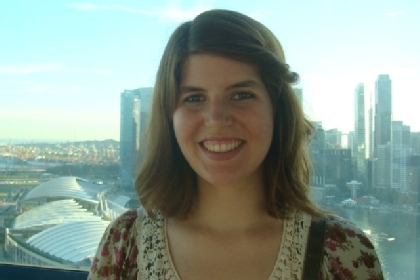
Cambodia: A reflection on the genocide by Khmer Rouge and coverage by US media by Kathryn Perkins ’13 In 1975 over one-fourth of the Cambodian people were murdered. Not by foreign aggressors or malicious diseases, but by their own people. The Khmer Rouge, a communist…
. The Holocaust has completely reshaped the world’s perception of human atrocity; it has birthed countless reflections on how we can prevent genocide in the present and future, and how we can better respond to genocide. But only 35 years later, the international community turned a blind eye to the genocide of Cambodia. Kathryn Perkins In my research, I focused on how the Cambodian genocide was portrayed in the American media. Journalists hold a unique position in that they have a credible
Do you have any feedback for us? If so, feel free to use our Feedback Form.


